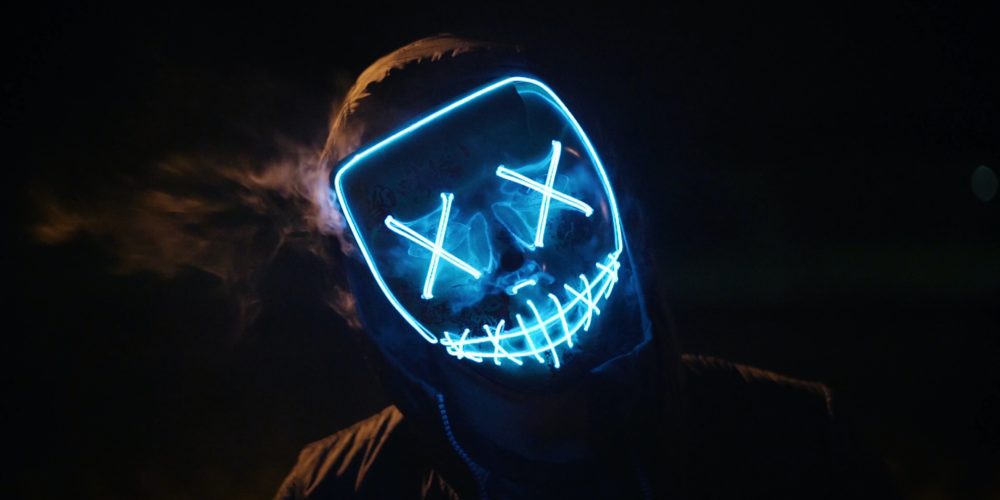How the virus masked and unmasked us

Face-masks? Who apart from a few knew about them before 2020? Now they are a daily necessity, a wardrobe item.
Most of us may think we never put on a mask before this pandemic, but actually we did. I refer not to the triple-layer protection we now sport, but to the masks humans wear by habit: the ones we use to convince the world we are something that we are not.
Most people pretend most of the time. They pretend to be more successful, more honest, more compassionate, more generous and more loving than they actually are. We can add many more ‘mores’ to that list. We do this because we fear that revealing ourselves in our natural states will be off-putting. Others will not accept us as we are, so we must put on the masks, every day. It’s the only way to get ahead and to be popular, we think.
The coronavirus may have slapped protective masks on many of our faces, but it has also unmasked many. It ripped off many of the masks that were being deployed for the purpose of fakery.
Many who lead nations had on the masks of collective good before the virus got on airplanes and started travelling the world. They would pretend to actually care about the uplift of their people. They would promise to deliver development and wellbeing to all. Well, those masks were the first to start slipping when the tough decisions occasioned by the crisis took centre-stage.
We found out which leaders actually cared about the deaths of their people, and which ones cared more about their own re-election. We discovered who would put people in harm’s way without a second thought, and who would weep genuinely when citizens perished. We found many would manipulate the data about the pandemic for personal gain: some would suppress bad news; others would exaggerate it. We even uncovered a sickening truth: that some would stand accused of stealing emergency funds and equipment donated to save lives. Behind the masks of benevolence and statesmanship lurked a deep and malevolent selfishness.
The masks slipped in the corporate world, too. Many business leaders had been acting out ‘innovation theatre’ for many years – a play in which they pretended to introduce fresh new innovations while wearing the mask of the visionary disrupter. Most of it was just sleight of hand, to get their boards to tick the innovation box; and to manage the PR messaging. Were there any actual, meaningful, impactful innovations behind the smiling mask? Not so much. Now they all scramble to play catch-up.
A different mask also got wrenched off in the corporate world: the one that says “people first.” The wearers of that one would put out the image of the compassionate, inclusive employer who seeks to give opportunity and advancement to all, who regards the workforce as an extended family. Until corona whacked the top line, that is. After that, it was a quickfire exercise in many boardrooms to slash the headcount and send huge numbers of loyal workers home, to protect the financial numbers and the share price. Behind the mask, it was shareholders and senior executives first. Ordinary people? Mere resources whose utility had passed.
Nothing exposes reality like a crisis. Many masks are on display when people are comfortable; many slip off when pandemonium ensues. It has not been a good year for leadership. A few leaders have come shining through, staying calm and compassionate and true to their values; most have shown their unattractive true faces.
When we select our leaders, our employers and our life-partners, we often forget to check: is this a real face before me, or just a mask? Are these mere words I hear, or heartfelt conviction? Is this success I see displayed, or the fruits of deception? Is this compassion, or just a selfie for the followers?
None of us is mask-less, nor is it possible to be so. Somewhere or other, we put up a front. We smile when we don’t want to, we sugar-coat difficult decisions, we seek belonging and popularity, we try not to hurt too many feelings. The trick is to catch ourselves before we are caught out; to systematically reduce the number of masks we flaunt or feel forced to wear. It is the most difficult thing in a life of human interaction to be totally true to ourselves, but we can all get better at it. We must, if we are to have any relationships of meaning. A life spent behind an array of masks is only a bit of theatre, a show we put on for the claps.
( Sunday Nation, 6 September 2020)

Buy Sunny Bindra's new book
The X in CX
here »
Popular Posts
- The pause that saves usJune 8, 2025
- Where are you rushing to—your funeral?June 29, 2025
- How to spot a real thinkerJune 15, 2025
- Built the app, forgot the flowJune 22, 2025
- The first push is the hardestJune 1, 2025















